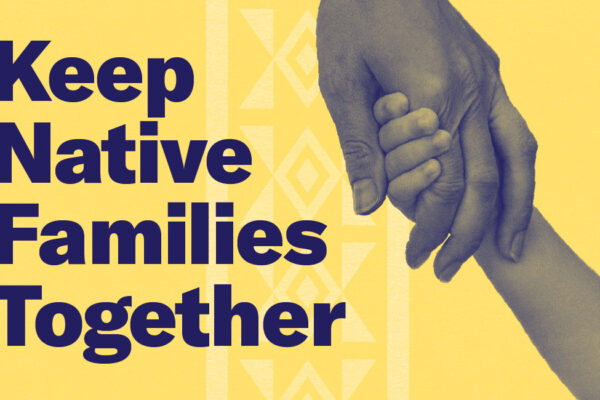The ACLU and ACLU of Minnesota filed an amicus brief on August 28, 2024 to urge the Minnesota Supreme Court to uphold the constitutionality of the Indian Child Welfare Act (ICWA) and the Minnesota Indian Family Preservation Act (MIFPA).
ICWA was passed by Congress in 1978 to address the nationwide crisis of state child welfare agencies tearing Native children from their families and placing them in non-Native homes at a disproportionate rate. Throughout history, federal and state governments have sought to undermine and threaten the existence of tribes via the forced separation and assimilation of Native children. In 1985, MIFPA was passed by the Minnesota Legislature to strengthen ICWA protections in Minnesota. Both ICWA And MIFPA aim to prioritize the placement of Native children within their extended families or tribal communities, where their cultural identities will be understood and celebrated. If the Minnesota Supreme Court overturns ICWA and MIFPA, Native children could be indiscriminately removed from their families and culture while simultaneously depriving tribes of future generations – putting the very existence of tribes in jeopardy.
“Tribes have a fundamental right to govern themselves and make decisions on issues that affect their own people—including Native children—without undue interference from federal or state governments,” said Crystal Pardue, staff attorney in the Racial Justice Program at the American Civil Liberties Union. “Constitutionally enacted and rooted in longstanding legal precedent, ICWA and MIFPA preserve this important aspect of tribal sovereignty. They must be protected and upheld.”
“ICWA and MIFPA are plainly constitutional,” said Catherine Ahlin-Halverson, staff attorney with the ACLU of Minnesota. “Tribal Nations have a unique and important economic and cultural role in Minnesota, and it is their sovereign right to keep member families together, care for their children, and preserve tribal culture by ensuring access to their cultural identity, language, and heritage.”
Stay Informed
Sign up to be the first to hear about how to take action.
By completing this form, I agree to receive occasional emails per the terms of the ACLU’s privacy statement.
By completing this form, I agree to receive occasional emails per the terms of the ACLU’s privacy statement.

